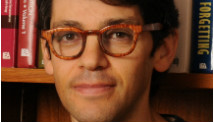MINNEAPOLIS (AP) — Retaining that No. 1 national ranking has been elusive throughout this wild season in college basketball, and Indiana was the latest to lose at the top — again.
Most important and maybe more challenging for the Hoosiers, however, is holding on to first place in the tough-as-ever Big Ten.
Trevor Mbakwe had 21 points on 8-for-10 shooting and 12 rebounds to help Minnesota take down top-ranked Indiana 77-73 on Tuesday night, the seventh time the No. 1 team in the Associated Press poll has lost this season. Three of those losses were by the Hoosiers, who were No. 1 when they fell to Butler and Wisconsin earlier this season. All three opponents were unranked at the time.
Indiana (24-4, 12-3) has held the No. 1 ranking for 10 of the 17 polls by the AP this season, including the last four, and that will likely change next week. But fending off Michigan, Michigan State and Wisconsin is what's on the minds of the Hoosiers, who'll take a one-game lead in the conference race into Saturday's game against Iowa.
"Winning the Big Ten was going to be tough whether we won today or lost," said star guard Victor Oladipo, who had 16 points. "We knew it was going to be tough from the jump. Now it's even tougher. But I think my team is ready for it. We just have to go back and see what we did wrong and correct it."
Andre Hollins added 16 points for the Gophers (19-9, 7-8), who outrebounded Cody Zeller and the Hoosiers by a whopping 44-30 and solidified their slipping NCAA tournament hopes with an emphatic performance against the conference leader. The fired-up fans swarmed the court as the last seconds ticked off, the first time that's happened here since a 2002 win over Indiana.
"There were just too many times when that first shot went up and they were there before we were because we didn't get into their bodies," Hoosiers coach Tom Crean said. "We weren't physical enough on the glass. That's the bottom line."
Zeller, the second-leading shooter in the Big Ten, went 2 for 9. He had nine points with four turnovers. Minnesota had 40 points in the paint to Indiana's 22.
Mbakwe, a sixth-year senior, had a lot to do with that. While positing his conference-leading seventh double-double of the season, the 24-year-old Mbakwe was a man among boys in many ways in this game, dominating both ends of the court when the Gophers needed him most. He grabbed six of Minnesota's 23 offensive rebounds, two of them to keep a key possession alive. His off-balance put-back drew contact for a three-point play with 7:22 left that gave the Gophers a 55-52 lead.
Mbakwe was called for a loudly questioned blocking foul, his fourth, with 4:39 remaining on Zeller's fast-break layup and free throw that put the Hoosiers up 59-58. But Austin Hollins answered with a pump-fake layup that drew a foul for a three-point play and a two-point advantage for the Gophers.
The Hoosiers didn't lead again, and Joe Coleman's fast-break dunk with 2:35 left gave Minnesota a 68-61 cushion that helped it withstand a couple of 3-pointers by Christian Watford and one by Jordan Hulls in the closing minutes. That was the only basket Hulls made after halftime. He had 17 points.
"Just the way we bounced back is unbelievable. We showed that we can beat one of the best teams in the country. Now we have to build off this," said Mbakwe, whose team lost eight of its previous 11 games starting with an 88-81 loss at Indiana on Jan. 12. The Gophers were ranked eighth then. They didn't even receive a vote in the current poll. That could change next week.
The Hoosiers are still in position for their first outright Big Ten regular-season championship since 1993. With another home game against Ohio State on March 5, Indiana could still clinch the title before the finale at Michigan on March 10.
For now, though, the Hoosiers have to regroup and re-establish their inside game after the trampling in the post they endured here.
"They were relentless on the glass. We just didn't do a great job of boxing them out," Oladipo said.
___
Follow Dave Campbell on Twitter: http://www.twitter.com/DaveCampbellAP


